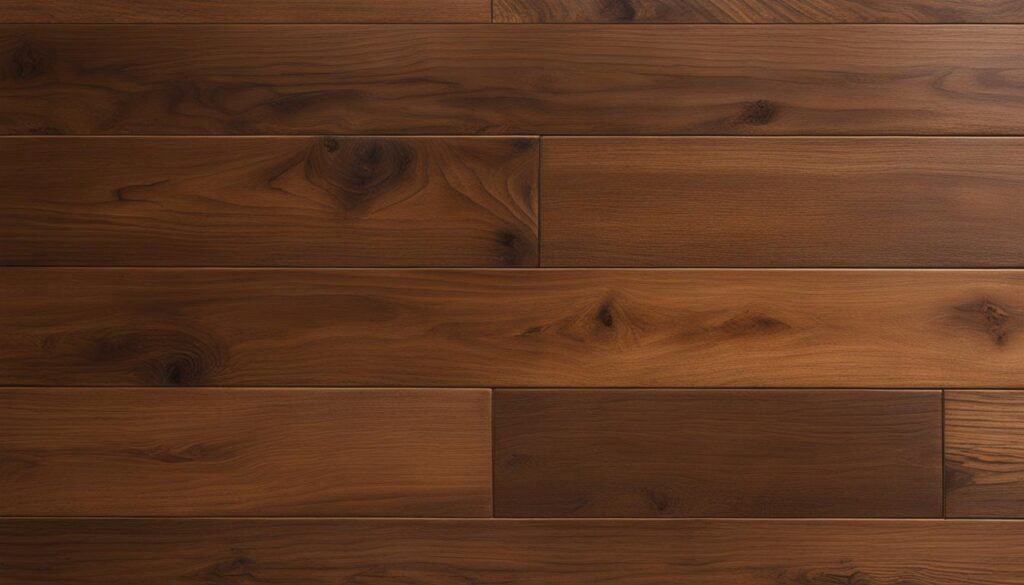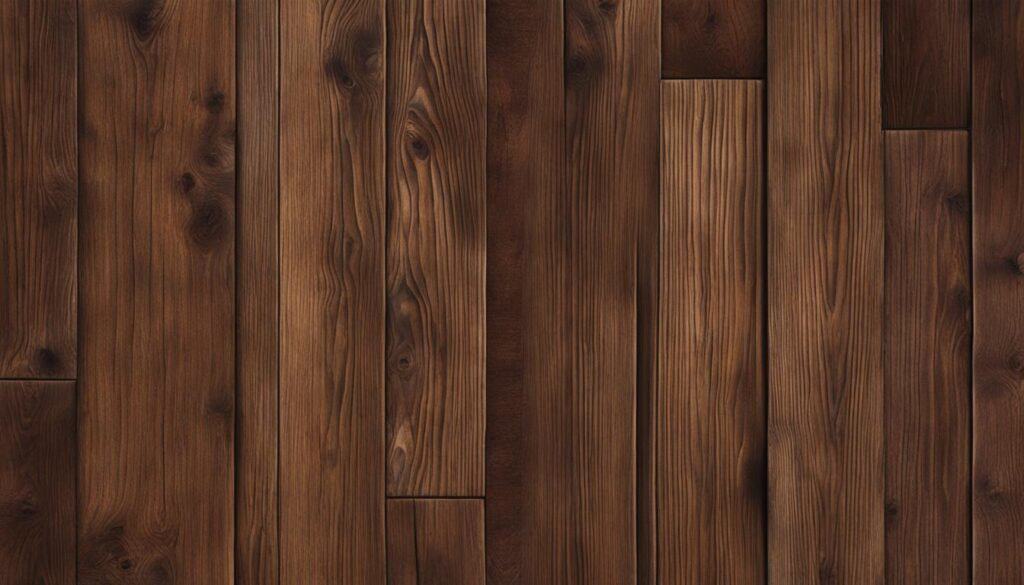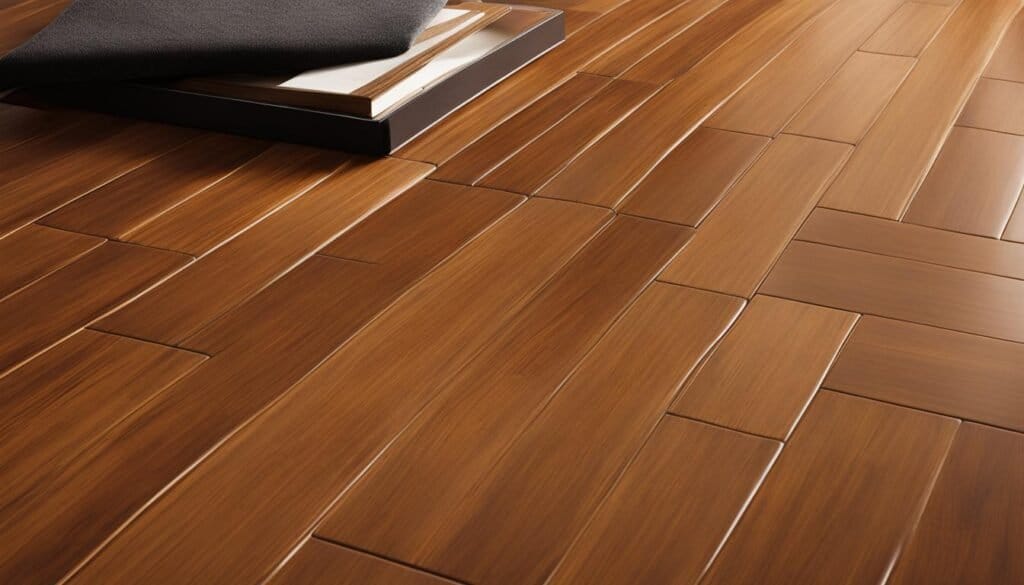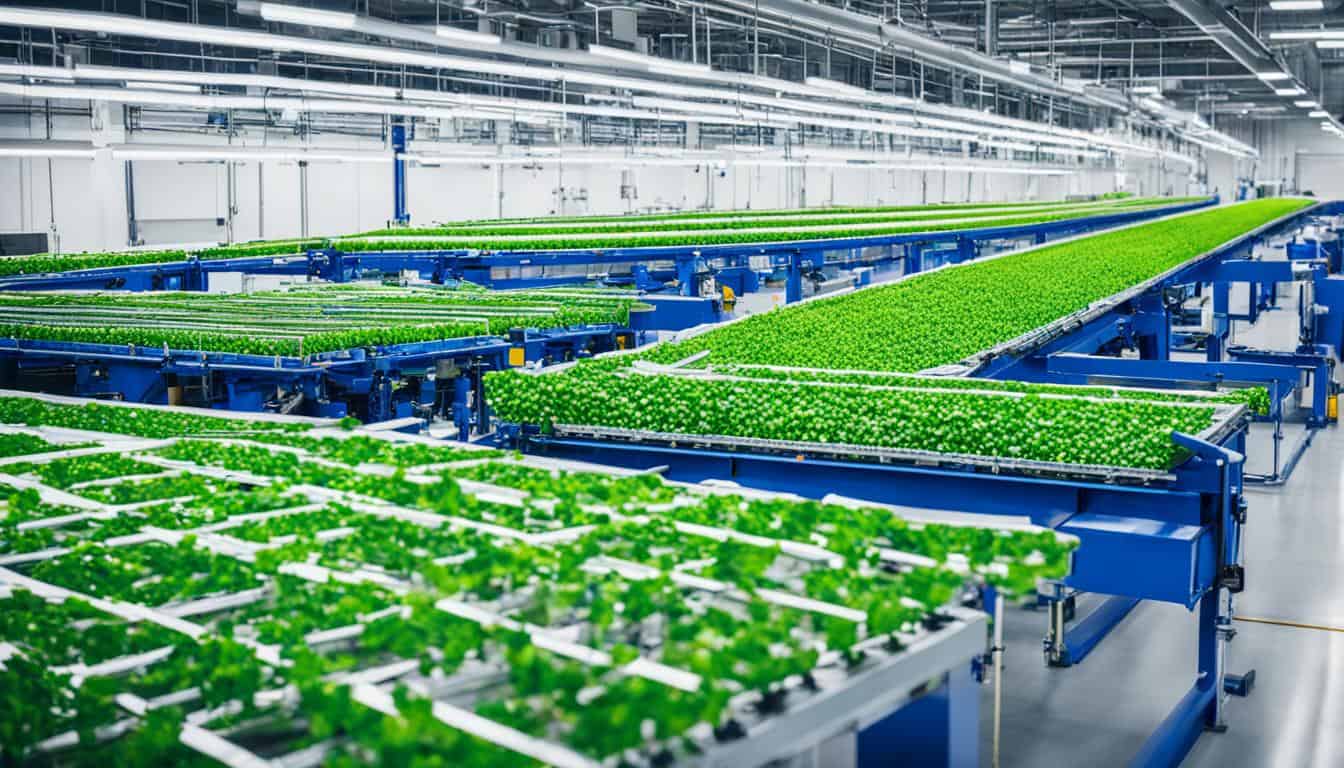As a homeowner or renovator, I’m always on the lookout for ways to make my spaces more eco-friendly without compromising style or quality. That’s why I’m excited to share with you the top 9 sustainable hardwood flooring options that not only add a touch of elegance to any room but can also make a significant positive impact on the environment. From FSC certified wood to reclaimed wood, bamboo flooring, cork flooring, recycled glass tiles, and natural linoleum, these eco-friendly hardwood floor solutions are perfect for creating a beautiful and green home.
Key Takeaways
- Choosing sustainable hardwood flooring options can improve the environment and your personal well-being.
- FSC certified wood ensures responsible forest management, quality, and eco-friendliness.
- Reclaimed wood flooring is a stylish and environmentally conscious choice that preserves old-growth forests.
- Bamboo and cork flooring options are rapidly renewable, durable, and biodegradable.
- Recycled glass tiles and natural linoleum are sustainable alternatives for an eco-friendly home design.
Why Eco-Friendly Flooring Matters for Your Home and Environment
Choosing eco-friendly flooring has a significant impact on both your home environment and the planet. By selecting sustainable and healthier alternatives, you are not only enjoying improved indoor air quality but also supporting forest management and conservation efforts. In a world full of misleading “greenwashed” products, understanding the importance of genuine sustainable flooring and avoiding false claims is crucial.
“Greenwashed” products can be misleading, but genuine sustainable flooring maintains air quality and contributes to future forest growth.
Opting for eco-friendly flooring options is a commendable decision for various reasons:
- Supports sustainable practices: By purchasing eco-friendly floors, you contribute to improved forest management and conservation, ensuring a healthier planet for future generations.
- Promotes a healthier choice: Sustainable flooring is manufactured with fewer toxic chemicals, providing a safer environment for your family. This is especially important for those who suffer from allergies or have respiratory health concerns.
- Improves indoor air quality: Eco-friendly flooring emits fewer volatile organic compounds (VOCs), which can negatively impact the air quality in your home. Cleaner air means better health for you and your loved ones.
| Eco-Friendly Flooring Option | Environmental Benefits | Impact on Indoor Air Quality |
|---|---|---|
| FSC Certified Wood | Supports responsible forest management and conservation | Low VOC emissions |
| Reclaimed Wood | Promotes recycling and reduces waste | Varies depending on the source and treatment |
| Bamboo Flooring | Rapidly renewable resource with minimal chemical use | Low or no VOC emissions |
| Cork Flooring | Renewable and biodegradable | Contributes to good indoor air quality |
When selecting flooring materials for your home, it’s essential to consider the environmental impact of your choices. Prioritizing eco-friendly flooring options can significantly contribute to a healthier living space and promote a more sustainable future for our environment. As consumers, we have the power to create lasting change by supporting environmentally responsible options and demanding higher standards in the home improvement industry.
The Benefits of Sustainable Wood Flooring Over Traditional Options
Eco-friendly hardwood floors not only look good and last long but also offer numerous benefits in terms of sustainability and health. In this section, we will explore the significance of sustainability in the forestry industry and the health benefits of choosing eco-friendly hardwood flooring.
Leaf Score: Ethical and sustainable hardwood flooring should come from forests that are managed, monitored, and protected, ensuring the growth and sustainability of trees for future generations.
Sustainability in the Forestry Industry and Its Impact
Sustainability in the forestry industry is a crucial topic, as it enables long-term benefits by promoting the responsible management of resources. The Forest Stewardship Council (FSC) plays a vital role in encouraging ethical and environmentally friendly forestry practices. The benefits of such methods in the industry are:
- Managed forests: Sustainable forestry ensures that managed forests continue to grow, maintaining the balance of natural resources for future generations.
- Reduced environmental impact: The adoption of sustainable manufacturing processes reduces the use of harmful toxins and limits air and water pollution, contributing to a healthier environment.
- Protection of ecosystems: Sustainable wood sourcing practices prioritize forest ecosystems, helping to maintain biodiversity and support various animal and plant species.
- Economic growth: By investing in sustainable wood flooring, consumers support local forestry communities and contribute to the growth of responsible forestry businesses.
“Sustainability is not just about minimizing the negative impacts but maximizing the positive impacts.” – David Oldfield, Co-founder, Good Environmental Choice Australia (GECA)
Health Benefits of Choosing Eco-friendly Hardwood Floors
Choosing eco-friendly hardwood floors not only benefits the environment but also contributes to a healthier living space. Here are some health advantages of opting for sustainable wood flooring:
- Improved indoor air quality: Sustainable wood flooring options involve the use of fewer toxic chemicals, VOCs (Volatile Organic Compounds), and other harmful substances, ultimately improving indoor air quality.
- Non-toxic adhesives and finishes: Many eco-friendly hardwood flooring options utilize adhesives and finishes with low or zero VOCs, leading to a healthier living environment and minimizing the risks associated with solvent-based products.
- Reduced allergen levels: Sustainable wood flooring tends to harbor fewer allergens, mold, and bacteria compared to traditional options, making it an excellent choice for allergy sufferers.
- Responsible sourcing: Wood sourced from responsible forestry practices decreases exposure to illegal logging practices and potentially toxic materials, further promoting a healthier home environment.
Opting for sustainable wood flooring provides numerous benefits over traditional options. By choosing eco-friendly hardwood flooring, you are contributing to a healthier living environment and promoting responsible forestry practices worldwide.
Exploring FSC Certified Wood: A Gold Standard in Sustainable Flooring

When it comes to sustainable flooring, the Forest Stewardship Council (FSC) certified wood stands as the gold standard. The FSC is a non-profit organization that aims to promote responsible management of the world’s forests by setting stringent environmental standards throughout the lifecycle of wood products.
FSC certification ensures that the wood comes from well-managed forests that follow strict environmental, social, and economic criteria. But what exactly makes FSC certified wood a top choice for sustainable flooring?
“FSC certified wood flooring meets rigorous environmental standards throughout its lifecycle, from forest management to the final product.”
One of the essential aspects of FSC certification is the chain of custody. This system tracks certified wood products from the forest through every step of the supply chain, including manufacturing, distribution, and sale. Each certified product comes with a unique chain of custody number, allowing consumers to trace the material back to its responsibly managed source.
Using FSC certified wood for your floors demonstrates your commitment to environmental stewardship and plays a crucial role in preserving our planet’s forests for generations to come. Moreover, it shows that you prioritize quality and sustainability in your home renovation projects.
- Adherence to strict environmental standards: FSC certified wood ensures that forest management practices protect and maintain biodiversity, prevent harmful logging methods, and mitigate the environmental impacts associated with deforestation.
- Supporting positive social and economic development: The FSC certification process involves complying with specific social criteria, benefiting local communities, workers, and indigenous people’s rights.
- Higher quality wood products: FSC certified products often undergo additional checks and inspections to guarantee that they meet quality test standards.
In summary, FSC certified wood is a responsible choice when it comes to sustainable flooring. By opting for this environmentally friendly option, you not only contribute to the conservation of forests globally but also invest in durable, high-quality flooring material that adds value to your home.
Reclaimed Wood Flooring: A Vintage and Eco-Conscious Choice

As we strive towards a more eco-conscious and sustainable world, reclaimed wood flooring has emerged as an incredible choice for those seeking green building options without sacrificing style or quality. This environmentally friendly alternative results from repurposing fallen trees, abandoned buildings, or lumber reclaimed from river bottoms.
Modernize: Bamboo is an eco-friendly wood flooring choice due to its natural anti-bacterial, water-resistant properties, and toughness. Its fast growth rate ensures minimal impact on hardwood forests, and it’s more durable than traditional hardwoods like maple and northern red oak.
Thanks to its origins, reclaimed wood flooring boasts a unique vintage aesthetic, breathing new life into residential and commercial spaces. By choosing reclaimed wood, consumers not only contribute to preserving old-growth forests but also reduce the demand for virgin wood.
The Appeal of Reclaimed Wood Flooring:
- Preserves natural resources and old-growth forests
- Supports eco-conscious and sustainable building practices
- Offers a one-of-a-kind vintage look and unique patina
- Provides a second lease on life for historic wood
- Contributes to healthier indoor air quality by avoiding harsh chemicals in manufacturing
Renowned companies, such as Carlisle Wide Plank Floors and Terraspan, offer an array of reclaimed wood flooring options with a range of styles, species, and finishes. These selections cater to various tastes, ensuring everyone can find the perfect product to suit their needs.
| Reclaimed Wood Flooring Company | Popular Species | Notable Collections |
|---|---|---|
| Carlisle Wide Plank Floors | Oak, Heart Pine, Chestnut | Original Surface Milled Collection, Factory Finished Collection |
| Terraspan | Oak, Walnut, Elm | Reclaimed Oak Collection, Reclaimed Walnut Collection, Reclaimed Elm Collection |
In today’s world, going green has become a primary concern for homeowners and builders alike. By opting for reclaimed wood flooring, individuals can make a significant difference in protecting our environment while enjoying the undeniable charm and character that comes with a vintage look.
Engineered Hardwood: A Less Resource-Intensive Solution

Engineered hardwood flooring is an increasingly popular and eco-friendly alternative to solid hardwood. This type of flooring makes efficient use of the available wood resources, making it a more sustainable choice. Due to its unique construction, engineered hardwood floors conserve trees and offer a less resource-intensive option.
The Manufacturing Process of Engineered Hardwood Flooring
Unlike solid hardwood flooring, engineered hardwood is composed of multiple layers. The top layer, or wear layer, is made of a thin layer of hardwood, providing the desired appearance of traditional hardwood flooring. The core layer, or substrate, is made up of high-quality plywood, high-density fiberboard (HDF), or even recycled or reclaimed wood fibers. This core layer provides stability and strength while reducing the amount of hardwood required for each plank.
The engineered hardwood manufacturing process utilizes the entire tree more effectively, often incorporating recycled or reclaimed wood fibers in the core layers.
The innovative construction of engineered hardwood makes it possible to achieve the appearance and durability of solid hardwood floors, but with a significantly reduced environmental impact. Below are some benefits of choosing engineered hardwood as an eco-friendly wood flooring option:
- Less resource-intensive: Due to the use of a thinner layer of hardwood for the top layer, the engineered hardwood manufacturing process requires less hardwood material.
- Recycled and reclaimed materials: The core layers can be made from recycled or reclaimed wood fibers, contributing to a more sustainable manufacturing process.
- Environmentally responsible: Engineered hardwood is an eco-friendly alternative to solid hardwood flooring, aligning with the growing trend of sustainable and responsible consumer choices.
In conclusion, engineered hardwood flooring is a sustainable and stylish choice for homeowners seeking to minimize the environmental impact of their flooring. Its unique construction offers the benefits of traditional hardwood but with significantly reduced resource usage, making it an eco-friendly wood option.
Bamboo Flooring: The Rapidly Renewable Flooring Alternative

Bamboo flooring has emerged as a popular and sustainable choice among eco-conscious consumers. Its rapid growth and minimal requirement for chemical pesticides or fertilizers make it an environmentally friendly and highly renewable resource. As a grass species, bamboo regenerates at a much faster rate than trees, providing a durable and renewable resource for green building and flooring solutions.
There are several factors that contribute to the sustainability of bamboo flooring, making it an attractive option for those looking to incorporate eco-friendly materials in their homes. Some of the main benefits of bamboo flooring include:
- Rapidly Renewable: Bamboo can grow up to 20 times faster than hardwood trees, replenishing itself within 3-5 years.
- Less Land Use: Bamboo requires less land to grow compared to traditional hardwood, redirecting land use for other purposes such as agriculture or conservation.
- No Chemical Pesticides: Bamboo resists pests naturally, reducing the need for harmful chemical pesticides and contributing to a healthier and safer environment.
- Durable Flooring: Bamboo flooring is hard, dense, and resistant to scratches, making it just as durable as traditional hardwood flooring options.
However, it’s crucial for consumers to choose environmentally responsible bamboo flooring options that support sustainable practices. Not all bamboo flooring products are created equal, thus it’s important to look for certifications indicating sustainable harvesting, manufacturing, and fair labor practices. One of the renowned certifications to look for is the Forest Stewardship Council (FSC).
Impactful Ninja: Sustainable hardwood flooring options include black cherry, maple, and oak, due to their durability and abundance. Additionally, bamboo, cork, and palm serve as sustainable wood-like alternatives.
Always look for FSC certifications when choosing bamboo flooring to ensure you are purchasing a sustainable and eco-friendly product.
For homeowners seeking a rapidly renewable, sustainable, and durable flooring alternative, bamboo flooring is an excellent choice. By incorporating sustainable products like bamboo into your home, you can contribute to a greener living environment while also enjoying the beauty and durability of this versatile material.
Cork Flooring: Comfortable, Renewable, and Biodegradable

Cork flooring is an excellent eco-friendly option for those looking to create comfortable and sustainable living spaces. It is derived from the bark of the cork oak tree, which can be harvested without causing any damage to the tree. This renewable resource is not only comfortable underfoot but also biodegradable, providing a guilt-free flooring option that supports forest preservation.
To better understand the benefits and features of cork flooring, let’s take a look at how it supports forest preservation and contributes to environmental sustainability.
How Cork Flooring Supports Forest Preservation Efforts
- Renewable resource: Cork is a renewable material as it is harvested from the bark of the cork oak tree, allowing it to regenerate and continue its natural growth cycle.
- Non-destructive harvesting: When cork is harvested, the tree remains unharmed, ensuring its continued growth and carbon sequestration, which aids in combating climate change.
- Longevity: Cork oak trees are long-lived and can be harvested for cork once every 9-12 years, making them one of the most sustainable sources of natural flooring materials.
- Forest preservation: The process of harvesting cork preserves the natural ecosystem and habitat of surrounding flora and fauna, maintaining a balance in the woodland environment.
- Support for local communities: The cork industry generates valuable jobs for the local community and aids in sustainable forest management practices, ensuring a healthy thriving forest for generations to come.
Not only is cork flooring an environmentally friendly option, but it also offers a myriad of additional benefits, such as:
- Thermal insulation: Cork is naturally insulating, which helps regulate temperature in your home.
- Acoustic insulation: Its natural acoustic insulation properties absorb and reduce sound transmission between rooms.
- Hypoallergenic and anti-microbial: Cork’s hypoallergenic properties make it an ideal choice for allergy sufferers, while its anti-microbial nature helps resist mold and mildew growth.
- Resilience and durability: The naturally resilient properties of cork allow it to bounce back from heavy foot traffic, ensuring its lasting durability.
“Cork flooring is an excellent sustainable choice, providing a comfortable underfoot experience while supporting forest preservation and local communities.”
In conclusion, cork flooring is a renewable, biodegradable, and comfortable flooring alternative that also supports forest preservation efforts. Its myriad benefits make it a top choice for any eco-conscious renovation or home building project. Embrace cork flooring for a sustainable, beautiful, and comfortable living space that benefits both the environment and future generations.
The Role of Recycled Glass Tiles in Sustainable Home Design
Recycled glass tiles play an important part in sustainable home design, offering an environmentally friendly flooring option made from recycled materials. These tiles not only contribute to a reduced environmental footprint, but also add aesthetically pleasing and durable surfaces to eco-friendly homes.
By choosing recycled glass tiles for flooring, homeowners can help support a circular economy where materials are repurposed and kept in use for as long as possible. This approach minimizes the demand for raw materials and reduces waste, ultimately lessening the burden on landfills and natural resources.
Below are some of the key benefits of using recycled glass tiles in your sustainable home design:
- Environmentally friendly: Made from post-consumer and post-industrial glass waste, these tiles help alleviate pressure on landfills and decrease the energy required for manufacturing new glass products.
- Unique appearance: Recycled glass tiles have an aesthetically distinct, semi-translucent surface that can complement a variety of home styles, from modern to traditional decors.
- Long-lasting: These tiles are known for their durability and resistance to scratches, stains, and moisture, making them ideal for high-traffic areas in the home, such as kitchens and bathrooms.
- Easy to maintain: Recycled glass tiles are a low-maintenance flooring option requiring minimal upkeep, easily cleaned with a damp cloth or mop.
In addition to being used as an environmentally friendly flooring material, recycled glass tiles can also serve a variety of other purposes in sustainable home design, including:
- Wall accents or backsplashes in kitchens and bathrooms
- Fireplace surrounds and mantels
- Outdoor patios, decks, or poolside areas
As people continue to explore sustainable products and eco-friendly alternatives, recycled glass tiles are gaining popularity among homeowners seeking to reduce their environmental impact while enhancing their living spaces with stunning and resilient surfaces.
Natural Linoleum: A Long-Lasting and Eco-Friendly Flooring Option
Natural linoleum is gaining popularity among eco-conscious homeowners seeking a sustainable and long-lasting flooring option. Derived from renewable resources, this green building material offers numerous benefits for both your home and the environment. In this section, we will discuss the key features that make natural linoleum a great choice for those looking to incorporate sustainable materials in their homes.
Made from a mix of linseed oil, cork dust, and wood flour, natural linoleum provides a flooring option that is not only eco-friendly but also biodegradable. Its environmentally friendly composition and low impact on the environment make it a truly sustainable choice for homeowners.
One of the most significant benefits of natural linoleum is its durability. This long-lasting material can endure heavy foot traffic, making it ideal for high-use areas such as kitchens and hallways. In addition, its resistance to wear and scratches allows it to retain its aesthetic appeal over time.
“Natural linoleum is an excellent choice for eco-friendly flooring, with its sustainable materials and long-lasting durability, it provides a beautiful and responsible option for homeowners.”
Another notable feature of natural linoleum is its ease of maintenance. With regular cleaning and occasional refinishing, you can preserve the look and longevity of your eco-friendly floor for years to come.
To further showcase the benefits of natural linoleum, let’s compare it with traditional vinyl flooring:
| Criteria | Natural Linoleum | Traditional Vinyl |
|---|---|---|
| Sustainability | ✓ Made from renewable resources | ✗ Made from petroleum-based materials |
| Biodegradability | ✓ Fully biodegradable | ✗ Non-biodegradable |
| Durability | ✓ High resistance to wear and scratches | ✗ More susceptible to damage over time |
| Maintenance | ✓ Low-maintenance and easy to clean | ✓ Low-maintenance and easy to clean |
Natural linoleum is an excellent eco-friendly flooring option for those seeking to incorporate sustainable materials in their homes. With its durability, low impact on the environment, and biodegradable composition, it stands out as a responsible and aesthetically pleasing alternative to traditional flooring options.
Conclusion on Types of Wood Flooring That Are Eco-Friendly
As a conscious homeowner, opting for sustainable flooring choices not only allows you to create beautiful living spaces but also contribute to a healthier planet. By choosing eco-friendly options such as FSC certified wood, reclaimed wood, bamboo, cork, and natural linoleum, you can make a significant positive impact on the environment and your personal health.
These sustainable hardwood flooring options provide a perfect balance between style, durability, and environmental responsibility. Making such choices means you are actively supporting responsible forest management, green building initiatives, and environmentally friendly practices throughout the manufacturing process. This is an important step towards promoting conscious consumerism and sustainable living in today’s fast-paced world.
I encourage you to explore and embrace eco-friendly flooring solutions for your home renovation or construction projects. By doing so, you not only enhance the aesthetic appeal of your space but also demonstrate a commitment to environmental conservation and long-term well-being for generations to come. Remember, every small step towards sustainability counts and can make a world of difference!
FAQ on Sustainable Hardwood Flooring Options
Q: What is the difference between solid hardwood and engineered wood?
A: Solid hardwood is a type of flooring made entirely from one piece of wood, such as maple or red oak. On the other hand, engineered wood flooring is a layered product combining a real hardwood species layer with a core constructed from various wood materials.
Q: What makes a type of wood flooring eco-friendly?
A: A wood flooring option is considered eco-friendly if the wood used in its production is sustainably sourced, the flooring itself is durable and long-lasting, or it carries sustainability certifications such as the Sustainable Forestry Initiative or FSC-certified wood.
Q: Do some types of solid hardwood flooring come from eco-friendly sources?
A: Yes, some types of solid hardwood flooring are sustainable. This includes wood like maple and red oak which can be sourced from responsibly managed forests. Flooring made from these types of wood is often certified sustainable by organizations like the Sustainable Forestry Initiative.
Q: Are there eco-friendly engineered wood flooring options?
A: Absolutely, engineered wood flooring can also be an eco-friendly option. Some types of engineered wood flooring come from sustainably managed forests or are made from recycled wood fibers. It is important to look for flooring that’s certified by recognized sustainability certifications.
Q: What sustainable types of wood are commonly used in flooring?
A: There are several types of sustainable wood that are commonly used in flooring. These include maple, red oak, pine, palm, douglas fir, and teak among others. American hardwoods are also well known for being sourced from sustainably managed forests.
Q: Can you tell me more about flooring certifications?
A: Flooring certifications are provided by various organizations that verify a product’s sustainability or eco-friendliness. Two of the most recognized are the Sustainable Forestry Initiative and the Forest Stewardship Council (FSC) which certify that the wood used in flooring comes from forests that are managed responsibly.
Q: What should I know about sustainable wood flooring options in terms of durability?
A: Generally, both solid wood and engineered wood flooring are considered to have good durability. However, the exact level of durability can depend on the specific hardwood species and the type of finish applied to the flooring. Ensuring your wood flooring is sustainably sourced also contributes to the product’s overall durability and longevity.
Q: Are palm flooring and pine flooring eco-friendly options?
A: Yes, both palm and pine can be eco-friendly wood flooring options if they are sourced from sustainably managed forests. Being lightweight yet strong, palm flooring is a sustainable and versatile choice. Similarly, pine is a popular choice for its rustic appeal, and it is often sustainably sourced.
Q: Does hardwood flooring contain any materials that aren’t eco-friendly?
A: While hardwood flooring is generally an eco-friendly option, some types may contain materials or chemicals that are less sustainable. For instance, certain finishes or adhesives used in the manufacturing process may not be environmentally friendly. Therefore, it’s essential to research each product’s specifics before purchase.
Q: How can I ensure that my chosen wood flooring’s sustainability is genuine?
A: The best way to ensure the sustainability of your chosen wood flooring is to look for recognized certifications such as the Sustainable Forestry Initiative or FSC-Certified wood. Confirming the origins of the wood and opting for products from manufacturers with stated commitments to responsible sourcing and environmental stewardship is another good practice.





Leave a Reply